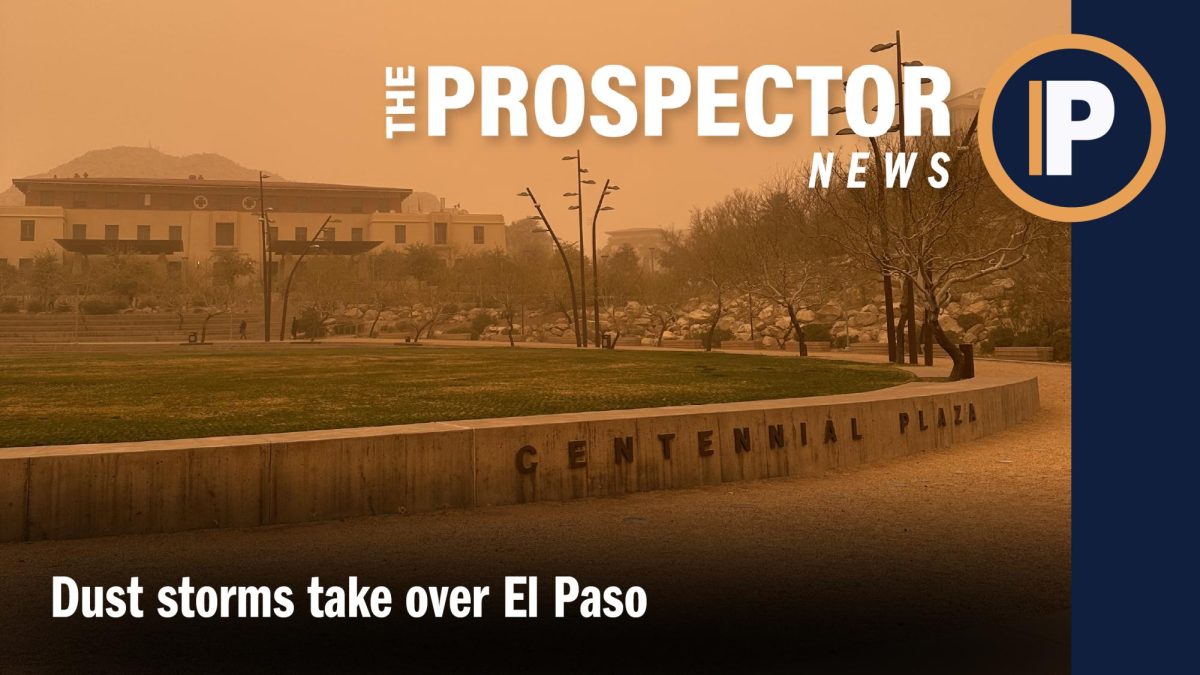Native American Heritage Month will be celebrated in November through an educational program at the university.
Cheyenne Lozano, president of the Academic Revival of Indigenous Studies of Education, said the group will be educating students about Native Americans and their history.
“Our main goals are to educate people about indigenous history and to support Native American students…here at UTEP by helping them find scholarships and such,” said Lozano, a sophomore history major and member of the Navajo tribe. “This is not only on the Native American Heritage Month, we try to do this every day at ARISE because we want to really inform people about indigenous studies.”
ARISE is raising awareness in November by sponsoring a series of events around campus.
“We will have cultural events such as a panel on cultural sovereignty, guest speakers, dancers and screenings at the Union,” Lozano said. “We will also be discussing the book (‘The Absolutely True Diary of a Part-Time Indian’) of Sherman Alexie, who is Native American himself.”
Lozano said it is important that all students learn about the Native American background of the United States.
“It is important to educate every student about indigenous history and background, but I think it is more important to inform people about how much Native Americans have changed,” she said.
Lozano also said that UTEP doesn’t know how to help Native American students and that’s what ARISE is for.
Contrary to this idea, Cemellí De Aztlan, coordinator of student life and scheduled professor of indigenous spirituality in spring 2014, thinks that UTEP is a place that embraces Native Americans. De Aztlan received a master’s degree in divinity from Harvard University.
“Ironically, there was a lack of representation at Harvard University of native people. I made it my goal to create that space for natives. I felt I wasn’t represented,” said De Aztlan, who is of the Navajo and Wampanoag tribes. “I think UTEP does an excellent job in creating an environment for people—who are predominantly Hispanic—to find their way and feel comfortable.”
De Aztlan said she hopes the courses will encourage progress in Native American culture.
“I think the education system has left out a lot of indigenous history and for me it is an important issue to feel represented,” De Aztlan said. “It’s a way to include input in the way that society thinks and forms their models.”
Aztlan said that educational institutions should spend more time acknowledging the history of Native Americans.
“We need to be more demanding of the study of Native history in our institutions of education. We should open our eyes to the facts regarding Native Americans’ presence and continued influence in the Americas,” she said. “For instance, Thomas Jefferson admired the native government system of the Iroquois Confederacy—the first democracy of the Americas—and he adopted their democratic system of government into the Constitution of our United States.”
De Aztlan also said it is important to understand the differences between the different cultures and that people should use Native American Heritage Month to learn about these differences.
“When we think about the natives during the holidays, like Thanksgiving, let us take the time to learn something deeper about those natives and migrants/pilgrims whose story we are commemorating,” De Aztlan said in an email. “Most Native Americans observe this ‘holiday’ as ‘A Day Of Mourning.’”
Freshman Octavio Salas said celebrating Native American Heritage Month is necessary to learn more about indigenous people.
“I think that we all are equal, and we need to celebrate each other for the differences we have,” Salas said. “There’s no problem celebrating this month—more than that, take advantage and learn about each other.”
Leonardo Montañez may be reached at [email protected].






